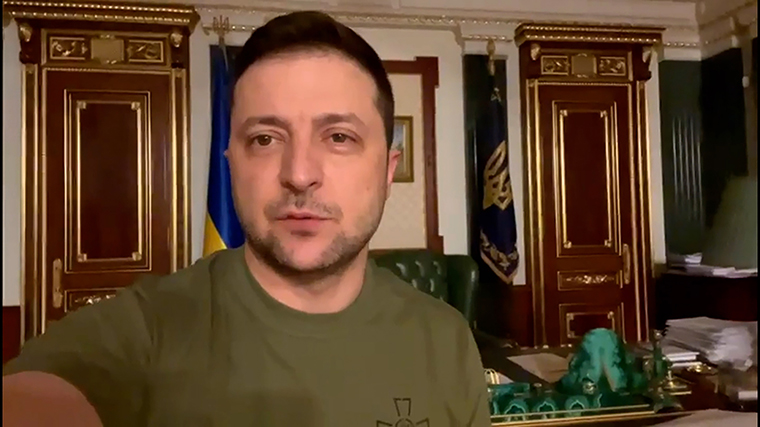Russia is poised to deploy up to 1,000 more mercenaries to Ukraine in the coming days and weeks, as a senior Western intelligence official warned Moscow could "bombard cities into submission," an escalation that could lead to significant civilian casualties.
The US has already seen "some indications" that Russian mercenaries may be involved in Moscow's invasion of Ukraine "in some places," a senior defense official said earlier this week, but it wasn't clear exactly where or in what numbers.
"We've seen some indications that they're being employed," the official said.
Now, a US official tells CNN that Russia is planning to deploy up to 1,000 more mercenaries in the near future.
Stalled forces: Some Russian forces have struggled with morale issues and setbacks on the battlefield, including a massive convoy north of Kyiv that has remained largely stalled for the past several days.
The mercenary forces would fortify the flagging units, the official said, as Russia's invasion of Ukraine enters its second weekend.
The official added that the US believes the mercenaries already in Ukraine have "performed poorly when facing the stiffer-than-expected resistance from the Ukrainians," and that as many as 200 such mercenaries have already been killed in the war as of late February.
Meanwhile, US and Western officials expect Russia to increase the pace and strength of its strikes on key Ukrainian population centers, including the capital Kyiv.
An intensifying assault: Russia now seems prepared to “bombard cities into submission,” one senior western intelligence official said on Friday, which could include a significant increase in the number of civilian casualties.
“It’s a very crude approach,” the official said. “The heavier weapons are not just heavier in the weight, they’re also heavier in terms of the damage that they can inflict. And they’re far less discriminant.”
Other officials have noticed a shift in Russian strategy from military targets to civilians, with more attacks becoming focused on population centers.
"The days to come are likely to be worse, with more death, more suffering, and more destruction, as the Russian armed forces bring in heavier weaponry and continue their attacks across the country," NATO Secretary General Jens Stoltenberg said on Friday.
US Secretary of State Antony Blinken echoed the sentiment during a press conference in Brussels Friday where he is meeting with European allies.
“The Kremlin’s attacks are inflicting an ever-increasing toll on civilians there. Hundreds if not thousands of Ukrainians have been killed, many more wounded, as have citizens of other countries. More than a million refugees have fled Ukraine to neighboring countries. Millions of people across Ukraine are trapped in increasingly dire conditions as Russia destroys more critical infrastructure,” Blinken said.





